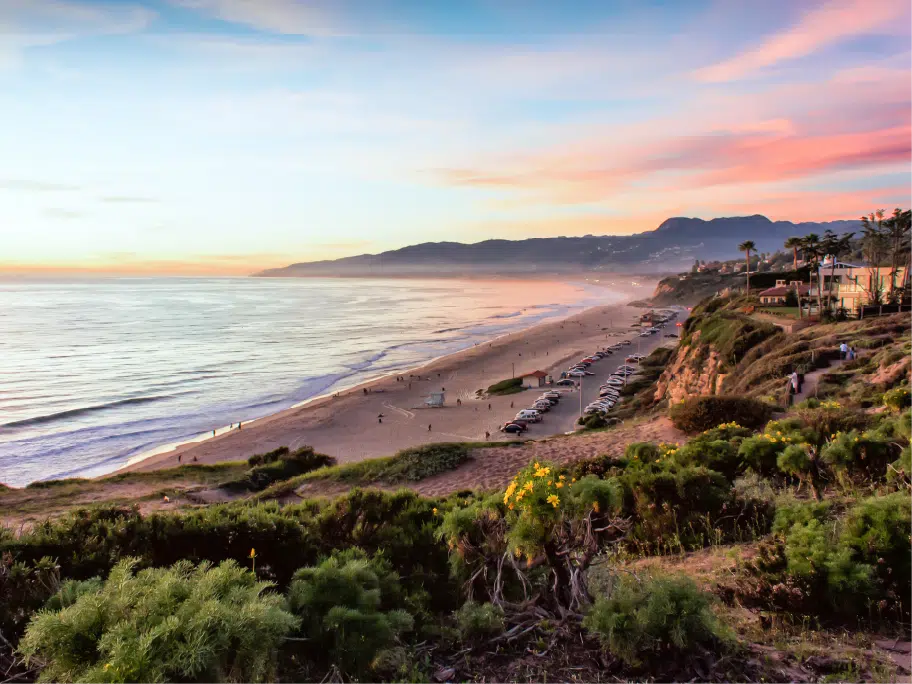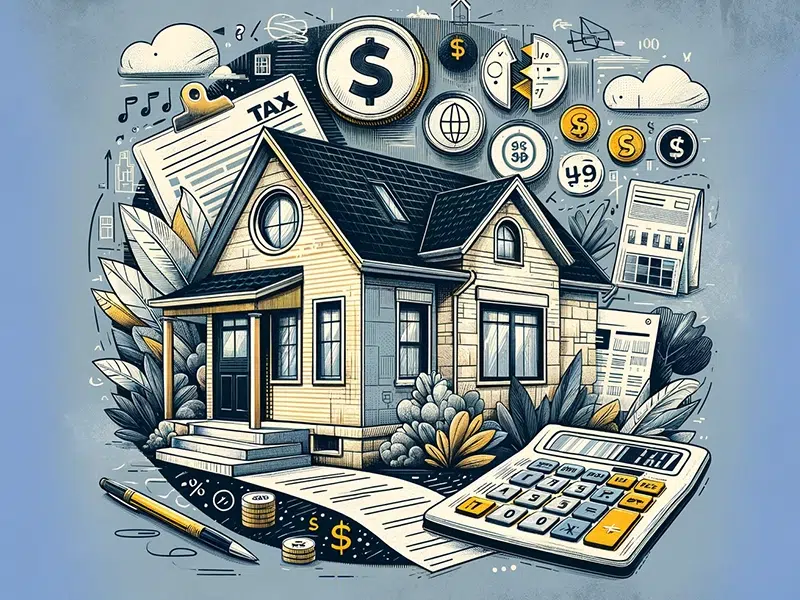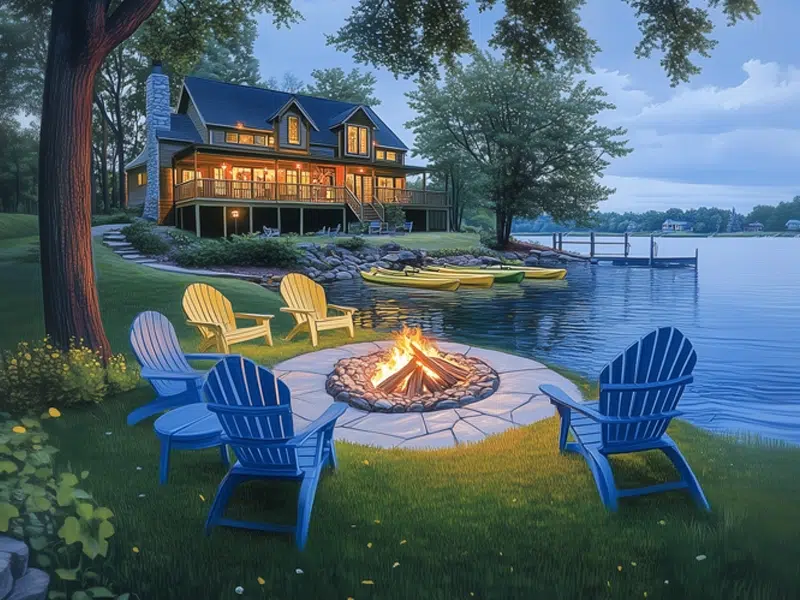Airbnb Laws in Southern California—What Hosts Need to Know
Many cities in Southern California have enacted Airbnb Laws regulating rentals, or outright banning them in specific zones. Laws passed previously have come under review as well, and it’s important for owners and hosts to know where the law stands for their short-term rental.
If you have questions about short-term rentals in California, contact Proper Insurance. Our agents are experts in the vacation rental industry. Call 888-631-6680 today.
A quick, free, 15-minute consultation will verify that insurance meets the needs of your unique short-term rental by revealing hidden gaps in your coverage that could lead to costly claims.
- Chula Vista, California, Vacation Rental Laws
- Del Mar, California, Airbnb Regulations
- Dana Point, California, Vacation Rental Laws
- Encinitas, California, STR Regulations
- West Hollywood, California, STR Regulations
- Laguna Beach, California, Airbnb Regulations
- Los Angeles, California, Short-Term Rental Laws
- Newport Beach, California, Airbnb Statutes
- Palm Desert, California, Short-Term Rental Laws
- San Diego, California, Airbnb Laws
- Santa Barbara, California, STR Regulations
- Santa Monica, California, Airbnb Regulations

Chula Vista, California, Vacation Rental Laws
Chula Vista Airbnb Laws: Liability Insurance Now Required
Chula Vista, California, passed new Airbnb laws and certain sections of this regulation which went into effect on February 1, 2022, one being Section 5.68.110 – Operational Requirements. This includes items such as 2-day minimum stays, safety requirements, insurance, quiet hours, maximum occupancies, and more. It’s important to understand the new regulations and ensure that you’re in compliance to avoid any fines.
The following laws and regulations are in place:
- Licensing: Must apply for a business license.
- Hosting Limits: Maximum of two STRs per resident.
- Tax: Valid Transient Occupancy Tax
- Upload Documents: Primary Residency Declaration, Photo ID, Proof of Primary Residency
- Insurance: the City of Chula Vista now has an insurance requirement stating: “The permittee shall maintain and provide proof to City of liability insurance appropriate to cover the Short-Term Rental use in the aggregate of no less than one million dollars; or conduct each Short-Term Rental transaction through a Hosting Platform that provides equal or greater insurance coverage.” – Section 5.68.110.(D).
Del Mar, California, Airbnb Regulations
Restricts Short-term Rentals to Commercial Zones as Part of New Airbnb Law
In 2017, Del Mar enacted a strict ban on short-term rentals in residential zones as part of new Airbnb laws. Seven years later, these ordinances still stand, limiting the number of zones within the city in which short-term rentals can operate to commercial zones and areas zoned Residential-Commercial and Visitor Commercial.
The following laws and regulations are in place:
- Zoning: Short-term rentals are allowed in residential-commercial and visitor-commercial districts. Home exchanges are still allowed in all areas so long as money is not exchanged for the arrangement.
- Licensing: The host needs to register with the city.
- Principle and Guidelines: The city has created a list of goals to include in the upcoming regulations which include respect for neighbors, land and community, safety measures as well clear communication for how to create a solution for STRs that operate in Del Mar.
- More Information: Check the City of Del Mar’s website for updates.
Dana Point, California, Vacation Rental Laws
Airbnb Laws Continue to Develop
Dana Point has seen an influx of owners joining the short-term rental market since its first Airbnb laws in 2016. The city attributes this growth to the increased popularity of online platforms such as Airbnb or Vrbo along with the attraction of a coastal vacation. There are currently 134 registered short-term rental properties in the city despite stringent short-term rental regulations.
The city continues to come back to short-term rental regulations as a method to “maintain the character of Dana Point neighborhoods by discouraging absentee corporate STR ownership, protecting against nuisances, and balancing the rights and responsibilities of all residents and homeowners.”
In this effort, Chapter 5.38 Short-Term Rental Business Regulations includes the following requirements:
- Safety: Short-term rentals shall comply with all applicable codes regarding fire, building and safety, and all other relevant laws and ordinances. Short-term rental units pass an initial inspection by the city prior to permit issuance.
- Parking: Short-term rentals must have a minimum of two off-street parking spaces.
- Advertising: All advertising for the short-term rental shall include the City-issued permit number.
- Minimum Stay Requirements: Short-term rentals will have a minimum stay of two consecutive nights.
- Noise: The owner shall ensure that the occupants of the short-term rental do not create unreasonable noise or disturbances, engage in disorderly conduct, or violate any provisions of the law.
Owners can opt into updates to short-term rental regulations by visiting the Dana Point government website and emailing: str@danapoint.org.
It would appear the city is primarily concerned with the safety and livability of the community. Hosts can assist by using preventative measures at their short-term rental property, such as a noise monitoring system that is active during bookings. This is a reliable way to comply with noise and nuisance restrictions and make sure guests aren’t getting rowdy during their stay.
Encinitas, California, STR Regulations
Now Requires Liability Insurance as Part of New Airbnb Laws
As of December 8th, 2021, the City of Encinitas, California, passed new Airbnb laws under Ordinance NO. 2021-22. Airbnb laws under Ordinance NO. 2021-22. The city believes that the amended laws will lead to better regulation of vacation rentals, as neighbors have started to complain. Complaints have ranged from excessive noise to disorderly conduct as well as traffic concerns.
The following laws and regulations are in place:
- Rules: Must be compliant with rules by avoiding public nuisance, large gatherings, loud noises, and follow state and local codes.
- Point of Contact: If any of the guidelines are violated, there must be a person on call, and they must respond at least one hour after the initial call. Failure to respond can result in penalties outlined on Ordinance No. 2121-22.
- Occupancy: Two persons are allowed per bedroom plus one additional person per dwelling. Minimum of three nights per stay.
- Parking: All designated on-site parking spots must be made available. Parking on the street is prohibited. Sidewalks as well as neighbor’s property must be kept clear.
- Trash: Trash must not be made visible except for designated trash days.
- Notice to Neighbors: Hosts are required to give adjacent neighbors within 300 feet of the STR property the contact number as listed above that can be reached at all times and hours as well as a copy of the good neighbor policy form provided by the city.
- Transient Occupancy Tax (TOT): Must pay TOT taxes which includes cleaning fees, resort fees, and other fees to be included in the STR rent fee.
- Outdoor Fire Pits: No open wood fire pits, bonfires or campfires are permitted at STRs. Natural gas and propane fireplaces and firepits with tanks smaller than 20-pound tanks are acceptable outside but must be at least 10 feet away from any structures or flammable materials.
- Insurance: Requirement of at least $1 million in liability by short-term rental insurance, indicating that standard homeowner’s policies would not suffice as it does not cover the business operations of an Airbnb or Vrbo.“Evidence of liability insurance for the property in an amount of at least one million dollars to cover the short-term rental operations, which insurance shall be maintained during the entire time of any permit issued by the city. Renewal must be provided to the City before the expiration of the insurance on file” -Ordinance NO. 2021-22 . Learn more about Proper’s comprehensive coverage with $1 million in commercial liability.
- Other: No special events, commercial filming, or recreational vehicles permitted, and other rules apply.
West Hollywood, California, STR Regulations
Reverses Moratorium on Short-term Rentals as Part of New Airbnb Laws
The City of West Hollywood announced new regulations for short-term rentals, requiring all rental units to have a minimum lease term of one year starting January 1, 2025. This change extends the 31-day minimum for single-family residences and condominiums seen in the WeHo City Regulations. The enforcement process for violations includes warnings, escalating fines, and potential criminal prosecution.
- 1-Year Minimum Lease Term: All rental units, including apartments and Accessory Dwelling Units (ADUs), must be leased for at least one year. Starting January 1, 2025, this requirement will also apply to single-family residences and condominiums, increasing from the current 31-day minimum.
- Home Sharing License: For property owners that would like to rent out rooms on their property while also residing there, owners can apply for a Home Sharing Business License to host guests for less than 31 days.
- Enforcement Process: Violations of these rental laws trigger a three-step enforcement process, beginning with a warning notice, followed by fines, and potentially leading to criminal prosecution if non-compliance continues.
- Fines: Fines for rental violations start at 400% of the advertised rental rate and can escalate to 800%. For ads without listed prices, fines range from $1,000 to $5,000.
- Reporting Violations: Residents can report suspected violations via phone, email, or online service requests, providing links to rental advertisements if possible.
Laguna Beach, California, Airbnb Regulations
2019 Airbnb Law Reverses Previous Ban on Short-term Rentals
Laguna Beach has joined a slew of cities limiting new short-term rentals as part of their Airbnb laws. After a near-total ban back in 2017 and an overturn of the said ban in 2019, the city council has reached a decision in regard to new Airbnbs and Vrbos. New short-term rentals will be confined to mixed-use and commercial zones within the city. Existing short-term rentals within residential districts are grandfathered in and may continue to operate. However, only 20% of units in permitted zones may be allowed to be converted into short-term rentals.
- Licensing: The other requirement for the continued operation of a short-term rental in Laguna Beach is the application and approval of a permit with the city. In order to be approved, an owner must submit:
- The name, address, and telephone number of the owner of the subject short-term lodging unit;
- The name, address, and telephone number of the operator and Point of Contact
- The address of the proposed short-term lodging unit
- The days of the week, weeks of the month, and/or months of the year that the proposed short-term lodging unit will be available for rent on a short-term basis, and the minimum length of stay that the short-term rental will be advertised
- The number of bedrooms and the applicable overnight and daytime occupancy of the proposed short-term lodging unit
- The number of parking spaces located on-site;
- A site plan and floor plan, drawn to scale depicting the site layout, trash storage area that must be concealed from public view, parking area and a floor plan of the entire unit/rooms to be rented for short-term lodging purposes
- Acknowledgment of receipt and inspection of the Good Neighbor brochure
- Evidence that the residence/premises passed a safety inspection conducted by the Laguna Beach Fire Department
- Evidence that the use of the property is eligible for liability insurance (homeowners or rental property insurance) in the amount of not less than $500,000.00 to cover injuries, damages, losses, and other claims associated with the short-term lodging
- An estimate of the daily rental fee that will be charged for occupancy of the unit(s)
- An application fee established by resolution of the City Council, except for Use Permit applications for home share units. The Use Permit fees are waived for home-shared units
- Point of Contact: local contact person that will be available to physically be able, if necessary, to respond within 60 minutes of notification of a problem resulting from the short-term lodging unit
While Laguna Beach is requiring a $500,000 liability insurance, a standard homeowner’s policy is not enough to cover every situation that a short-term rental may encounter. Bedbugs, squatters, and loss of business income protection are all concerns to think about when
With these requirements, the city hopes to balance the number of units available for vacation rentals and the number of units available for resident hosting, while not damaging the wealth generated by short-term rentals.
Los Angeles, California, Short-Term Rental Laws
Puts Forth New Airbnb Laws
As one of the most popular tourist destinations in the country, Los Angeles has a booming short-term rental market, which has led lawmakers to pass additional Airbnb laws to better regulate the industry and keep both hosts and guests safe.
- Licensing: To register for Home-Sharing, an applicant needs to file an application with the Department of City Planning in a manner provided by the Department which includes:
- Information needed to verify the Host’s identification and Primary Residence
- Identification of a local responsible contact person
- A list of all Hosting Platforms to be used
- Whether HomeSharing is for an entire Rental Unit or a portion thereof
- A Transient Occupancy Registration Certificate from the Office of Finance
- And any other information required by the instructions on the application and/or by the Guidelines promulgated by the Director of Planning
The permit is valid for one year from the issue date and may be renewed with the city so long as they have complied with regulations the previous year and have a tax account in good standing. Unfortunately, units in rent-stabilized areas under Chapter 15 of the Los Angeles Municipal Code are not eligible for short-term rentals.
In addition, owners are required to adhere to all local noise ordinances and safety codes and must provide a code of conduct to all guests.
Newport Beach, California, Airbnb Statutes
Reviews Airbnb Laws and Regulations
The City recently voted on additional Airbnb laws in Newport Beach, such as limiting the overall short-term rental permits issued in the City to 1,600, where the current number issued is 1,465. Hosts are allowed to operate their businesses with a granted short-term rental permit and a business license.
To check if their property is permissible as a short-term rental, hosts can enter their address on the Newport Beach government website. City officials plan to have the new ordinance to present before June 31, 2021. Further requirements for the permitted short-term rentals:
- Point of Contact: The owner must provide the City with the name of the local contact person who is available 24 hours a day, seven days a week.
- Fines: The owner understands that he/she assumes responsibility for all guests’ activities; violations may result in fines issued to the property owner and/or guests.
- Noise & Safety: The owner shall use best efforts to ensure that the guests of the short-term lodging unit do not create unreasonable noise or disturbances, engage in disorderly conduct, or violate provisions of this code or any State Law pertaining to noise, disorderly conduct, the consumption of alcohol, or the use of illegal drugs.
With preliminary regulations cropping up across the U.S., we have found that insurance requirements are not far behind. Once cities and counties recognize that short-term rentals are indeed businesses, and require hosts to obtain a business license, requiring proper insurance coverage is the natural next step.
Palm Desert, California, Short-Term Rental Laws
Airbnb Laws in Palm Desert Seeks to Balance Concerns with Tourism
The Southern California town of Palm Desert has joined many of its neighbors in passing Airbnb laws to better regulate the growing short-term rental industry. Like many Southern California cities, growing community concerns from Palm Desert residents have spurred legislators to propose regulations. In other areas of the region, this can be anything from a moratorium on all short-term rentals to an open registration system. Palm Desert falls somewhere in the middle with their requirements.
Prior to occupancy of an STR unit, the operator must comply with the following:
- Hosting Requirements: Meet and greet the renter on-site and obtain his or her name, address, and a copy of valid government-issued identification.
- Provide the renter with a copy of the Good Neighbor Brochure.
- Provide the renter with information about the STR regulations.
- Require the renter to execute a formal acknowledgment in the form acceptable by the City that he or she is legally responsible for compliance of all occupants of the STR unit and their guests, with all applicable laws, rules, and regulations pertaining to the use and occupancy of the STR unit. Provide the Responsible Person with the Operator’s 24-hour availability information.
The ordinance comes after continued tensions between community advocates and short-term rental owners. As is stated on the Palm Desert City site:
“The City recognizes that despite the new ordinance, STRs will continue to impact our community in ways both good and bad. We are committed to doing what we can to reduce negative impacts while respecting the rights of home and property owners and preserving the neighborhoods that help make up the fabric of our community.”
San Diego, California, Airbnb Laws
Passes a New Bill and Regulations
As of May 1, 2023, it is unlawful to operate a short-term rental (STR) without a license. There are four tiers that STRs fall into, each with differing regulations, and only tiers 1, 2, and 3 have open applications. Please visit the City of San Diego’s website to stay up to date with current laws and regulations.
The following regulations are in place:
- License: All STRs must have an active license to operate, and can be acquired by the STR Lottery in San Diego.
- Taxes: Homeowners are responsible for paying STR taxes which include the Transient Occupancy Tax and the Rental Unit Business Tax.
- Safety: Ensure that the unit is up to Fire Code Regulations.
- Neighborhood Peace: Ensure the STR doesn’t create a public nuisance and follow the Good Neighbor Guidelines.
- Signage: STRs may not have any signs on the premises promoting a business.
- Point of Contact: Host must be able to respond to a complaint within one hour, either in person or by phone.
Santa Barbara, California, STR Regulations
Zoning Regulations
According to the Santa Barbara Independent, Santa Barbara has dealt with short-term rentals operating illegally for years, so to keep home sharing opportunities available and STRS near the coastal and downtown areas, the city has cracked down on mitigating illegal STRs. Until an ordinance or more regulations are set in place, the city is currently regulating the zoning of STRs. View the zoning map here.
Santa Monica, California, Airbnb Regulations
Settles With Airbnb—New Airbnb Laws Now In Effect
- Licensing: Airbnb will require all listings to have a City License number. License numbers are provided to hosts who register to home share and acquire a business permit and license.
- Hosting Requirements: Airbnb will only allow each host to list one home or dwelling. Airbnb will remove listings that violate this requirement after January 20, 2020.
- Fees: Airbnb will collect and pay the City $2 for each night booked at any listing in Santa Monica.
- Other: Airbnb will provide regular reports to the City to ensure compliance and to support City enforcement efforts.
Residents overall agree that this creates a reasonable system to protect the City’s housing supply. City Attorney Lane Dilg says, “This agreement with Airbnb will make the City’s enforcement efforts less costly and more effective; most importantly, it will preserve housing for our residents. This is a positive outcome for Santa Monica.”
According to a city report, short-term rental listings in Glendale have grown by 33% over the past year, from 510 to 679 listings. Local hosts provided varying responses to regulations and while hesitant over requiring a licensing process, the hosts overall supported compliance surrounding guidelines for parking, trash, or noise concerns. Certain hosts suggested cameras or sound-monitoring equipment to monitor their properties.
Verify Your Short-Term Vacation Rental Insurance Today
Registering with the state and city are only the first step in starting a short-term rental business, whether it is as an investment or to earn extra money on unused rooms. Insurance not only protects your guests and home but also your income and investment.
Proper Insurance is the nation’s leading short-term rental insurance provider protecting homes in all 50 states, replacing inadequate Homeowners/Landlord policies. Their comprehensive coverage meets or exceeds standard short-term rental requirements with $1M Commercial Liability (CGL) and unmatched protection for your property and revenue. Additional custom coverages include guest-caused theft/damage, amenity liability (bikes, kayaks, hot tub, etc.), bed bugs, fleas, squatters, and more.
Please note: The information provided is intended as a guide and may not be comprehensive or current. Regulations may change and could vary by area or situation. Always consult local authorities or a legal professional to ensure you have the most accurate information for your short-term rental property.





